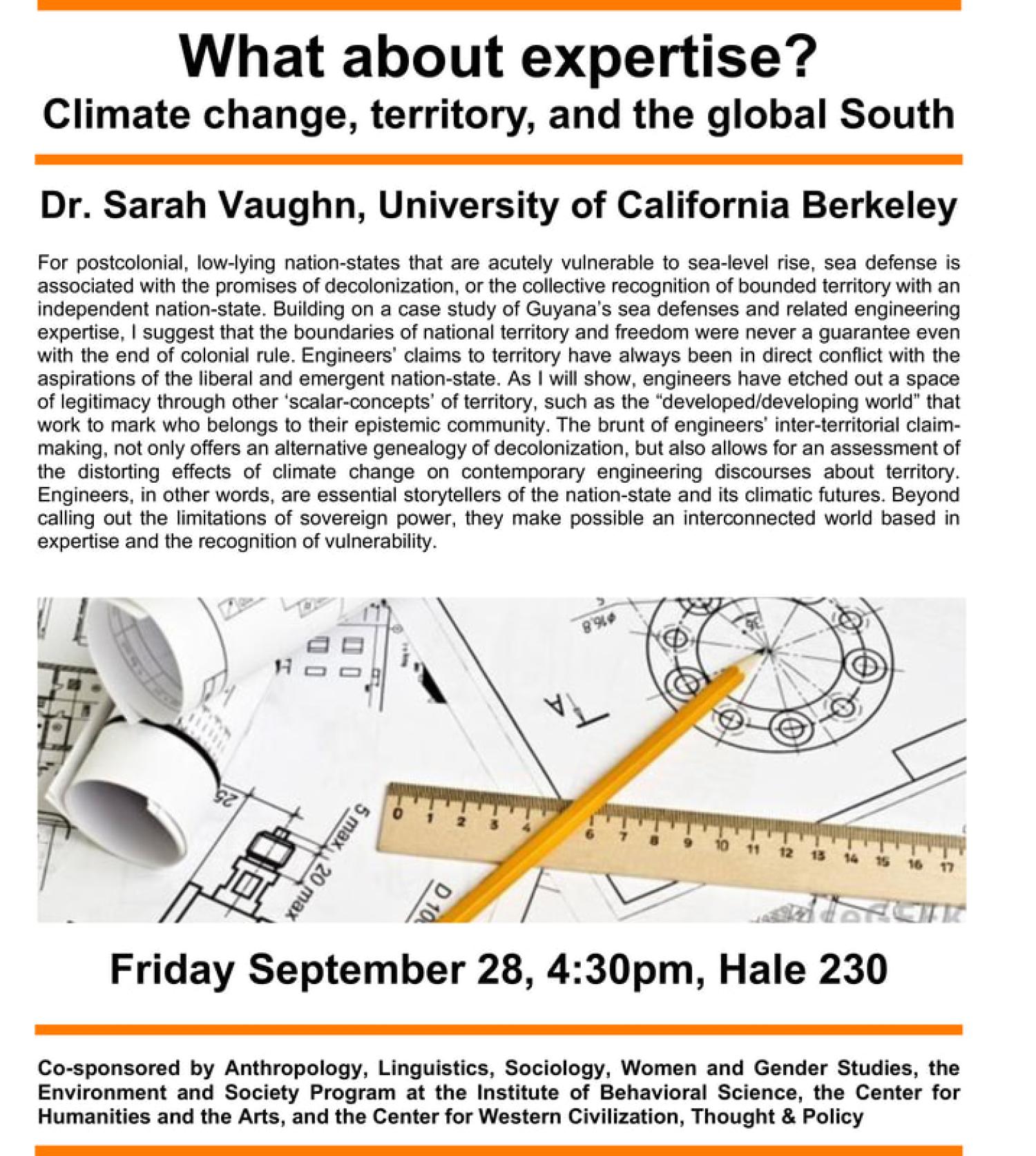What about Expertise? Climate Change, Territory, and the Global South

Dr. Sarah Vaughn (University of California Berkeley) will give a dialogue called "What about expertise? Climate change, territory, and the global South" on Friday, September 28, 2019 at 4:30 P.M. in Hale Sciences 230.
For postcolonial, low-lying nation-states that are acutely vulnerable to sea-level rise, sea defense is associated with promises of decolonization, or the collective recognition of bounded territory with an independent nation-state. Building on a case study of Guyana's sea defense adn related engineering expertise, I suggest that the boundaries of national territor and freedom were never a guarantee even with the end of colonial rule. Engineers' claims to territory have always been in direct conflict with the aspirations of the liberal adn amergent nation-state. As I will show, engineers have etched out a space of legitimacy through other 'scalar-concepts' of territory, such as with "developed/developing world" that work to mark who belongs to their epistemic community. The brunt of engineers' inter-territorial claim-making, not only offers an alternative genealogy of decolonization, but also allows for an assessment of the distoring effects of climate change on contemporary engineering discourse about territory. Engineers, in other words, are essential storytellers of the nation-state and its climatic futures. Beyond calling out the limitations of sovereign power, they make possible an interconnected world based in expertise and the recognition of vulnerability.
Co-sponsored by Anthropology, Linguistics, Sociology, Women and Gender Studies, the Environment and Society Program at the Institute of Behavioral Science, the Center for Humanities and the Arts, and the Center for Western Civilization, Thought & Policy.
Results
Dr. Vaughn’s visit was highly productive and fostered at least two faculty collaborations in the future. Dr. Alison Cool is an assistant professor of anthropology with a specialization in science and technology studies. She and Dr. Vaughn are currently making plans to co-organize a panel on expertise and ethics at the next major Science and Technology Studies conference known at the 4S: Society for Social Studies of Science. My interactions with Dr. Vaughn have resulted in a future collaboration on an article on intersectionalities and the environment – examining how race, gender, class, etc., lead us into new directions of research on human-environmental relations. 35 of 45 attendees were students.
The Center for Western Civilization, Thought and Policy funds research and educational initiatives that contribute to critical reflection on the development of Western civilization. All CU Boulder faculty and students are eligible to apply. If you are interested in applying for a CWCTP faculty grant, deadlines are rolling throughout the year.

